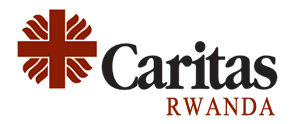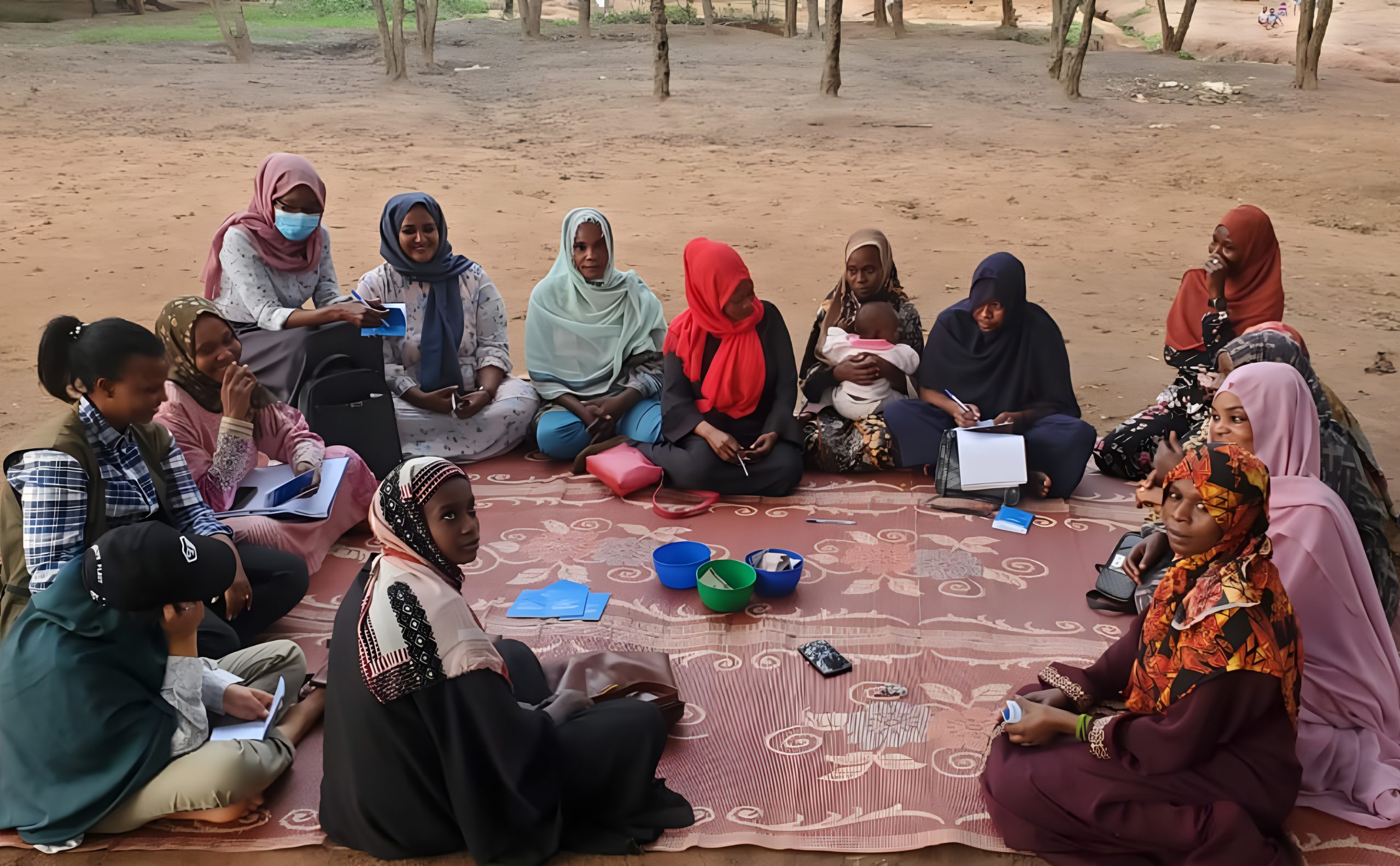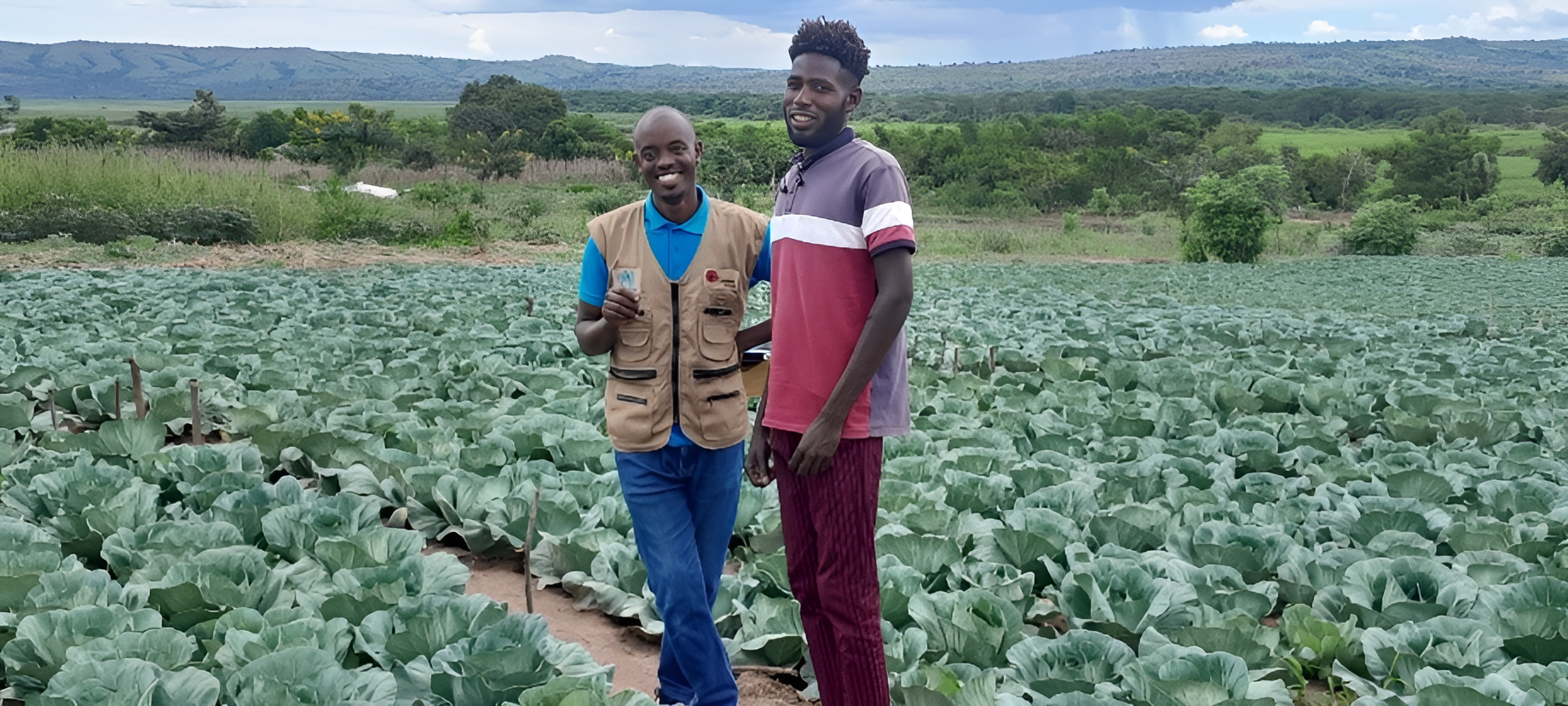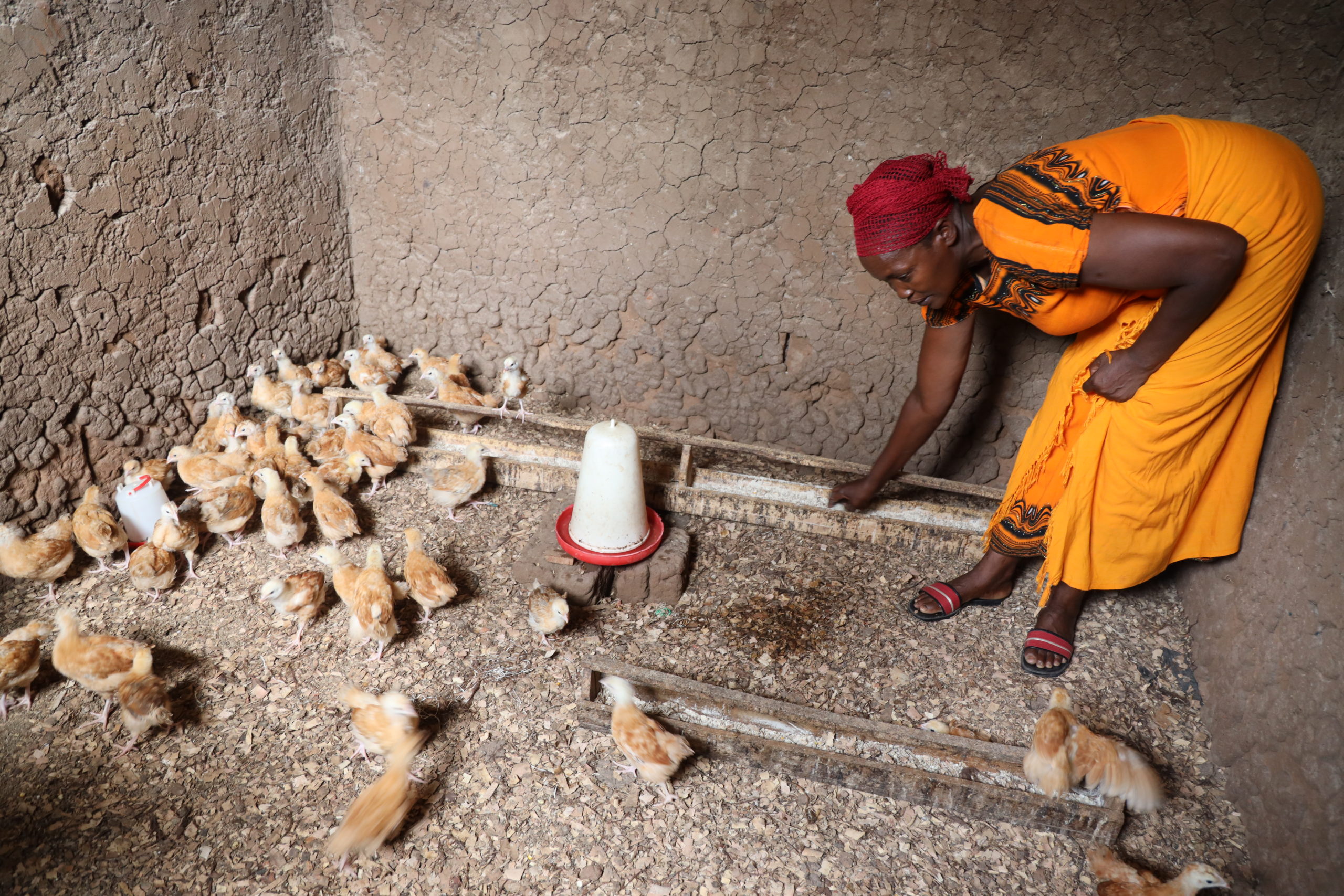On March 24, 2025, young people belonging to the Imbaduko y’Iterambere – Murambi Savings and Internal Lending Communities (SILC) group, supported by the Gera Ku Ntego (GKN) project, built a house for the family of Eric Nteziryayo (married with two children) living in Murambi village, Ntanga cell, Mugesera sector, Ngoma district, Eastern Province.
One of the members of the Imbaduko y’Iterambere – Murambi group proposed the idea of providing shelter for him as a Group Service Activity, which they had been trained to do. The rest of the group enthusiastically welcomed the idea. Twelve members, along with five other young individuals from the neighbourhood who were not part of the group, participated in the construction work. Eric’s house had recently been destroyed by natural disasters resulting from torrential rains, causing the roof to blow off and the walls to collapse.
The house measures 4 meters by 5 meters and includes two bedrooms, a living room, and a hallway. It has twelve metal tiles. To build it, these young people purchased no materials other than bamboo and contributed to community work by digging the ground, drawing water, working the mud, placing bamboo on the felled trees, and pouring the mud on top. The total cost of the work was Rwf 78,000.
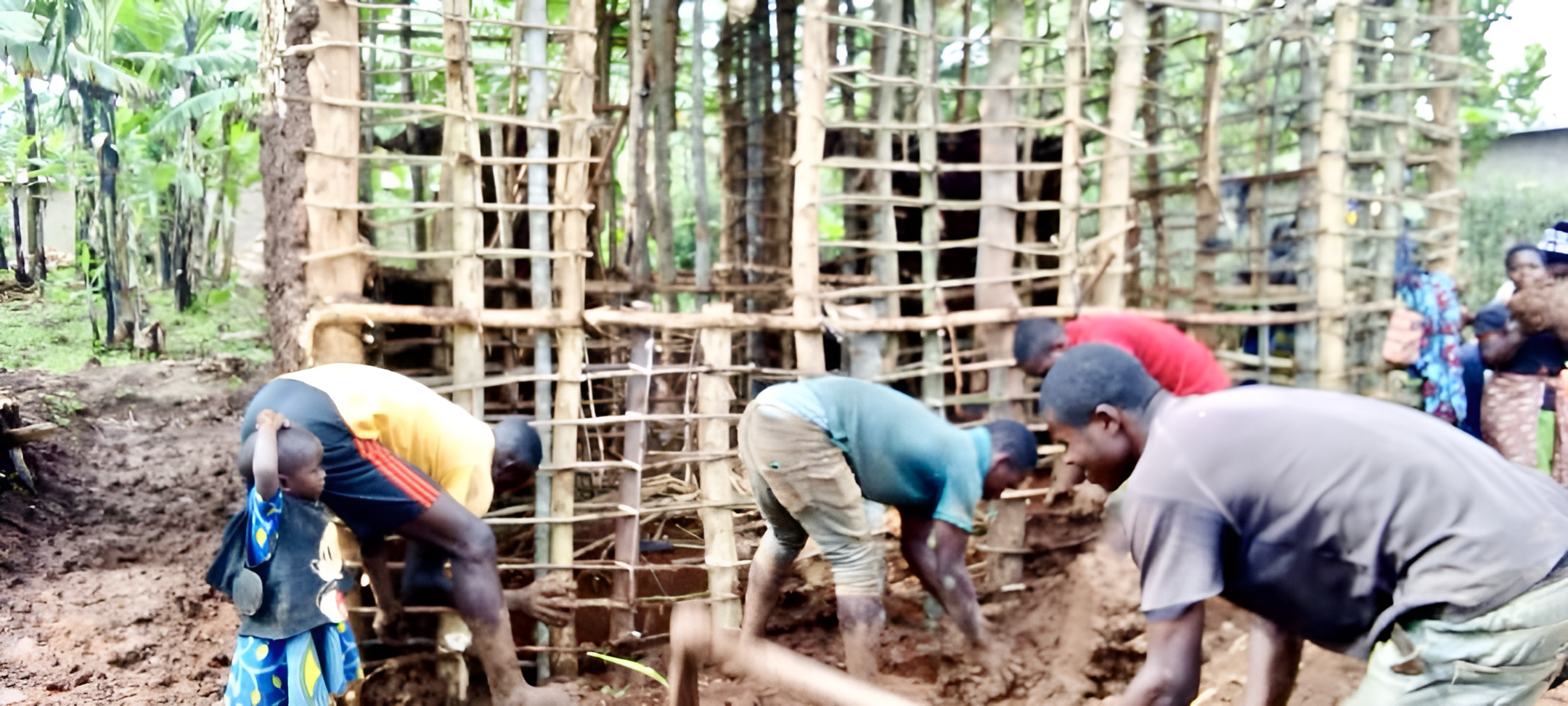
At the end of this activity, Florence Niyimenya, GKN’s field officer in Mugesera sector, thanked these young people and urged them to continue conducting such charitable activities and forming internal savings and credit groups to reduce the number of young people involved in drugs and other bad behaviors. She emphasized that young people are the fastest-growing force in nation-building.
The Gera Ku Ntego (GKN) Youth Project is a CRS-initiated project aimed at strengthening a sustainable pathway to scaling youth-focused approaches that address needs, opportunities, and priorities in Rwanda. The project is implemented by four Caritas dioceses (Butare, Cyangugu, Byumba, and Nyundo) in close collaboration and coordination with Caritas Rwanda. It builds on existing relationships with key stakeholders capable of achieving large-scale results, including the government, the private sector, and the Church, to strengthen their collective action aimed at improving access to formal finance and entrepreneurship. These are the main obstacles to the creation and expansion of small and medium-sized enterprises (SMEs) for young people in Rwanda.

